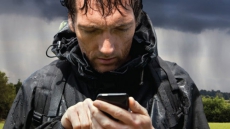Children interested in science are able to turn their interest into actual scientific knowledge to a greater extent when raised in wealthy countries, a study has found.
"It seems logical that a student who is interested in science as an academic subject would also know a lot about science, but our findings show that this link depends on the overall wealth of the country that the teenagers calls home," says psychological scientist Elliot Tucker-Drob from the University of Texas-Austin in the US.
To reach this conclusion, researchers examined data taken from the Programme for International Assessment (PISA), an ongoing international data collection project run by the Organisation for Economic Cooperation and Development (OECD).
For PISA, a new international sample of 15-year-olds is assessed every three years on reading, mathematics and science skills.
They found that students' science interest was more strongly linked to actual scientific achievement when they came from home and school environments that were rich in resources.
This was also true when they came from countries that were economically more prosperous (with higher gross domestic product).
On the other hand, students who live in poorer nations, however, have far fewer avenues by which to develop their scientific interest and learning.
"The take home message is that the joint effect of socio-economic resources and academic interest is more than the sum of its parts," Tucker-Drob concluded.
The findings were published in Psychological Science, a journal of the Association for Psychological Science.





